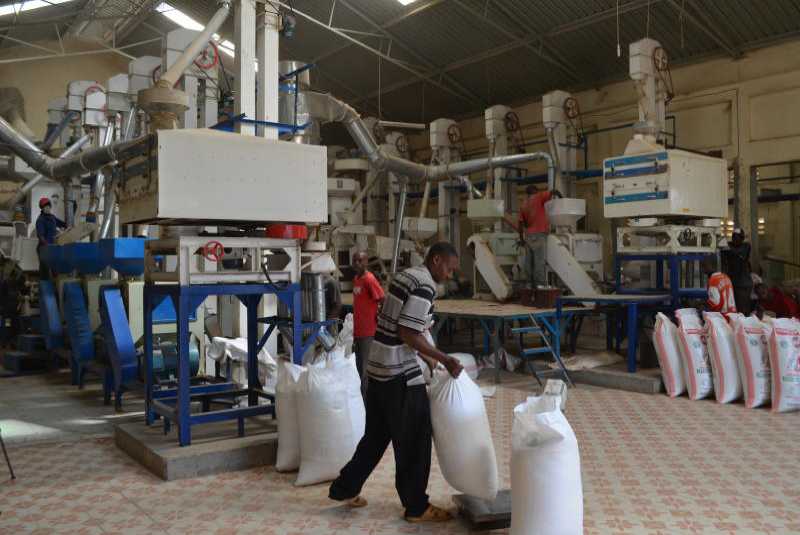×
The Standard e-Paper
Join Thousands Daily

Employees at a private rice mill owned by a trader Charles Njiru in Ngurubani town, Mwea packaging the milled product into bags within the facility. [File, Standard]
Ngurubani town in Mwea East sub-county was once a small market that went to sleep before 6pm.